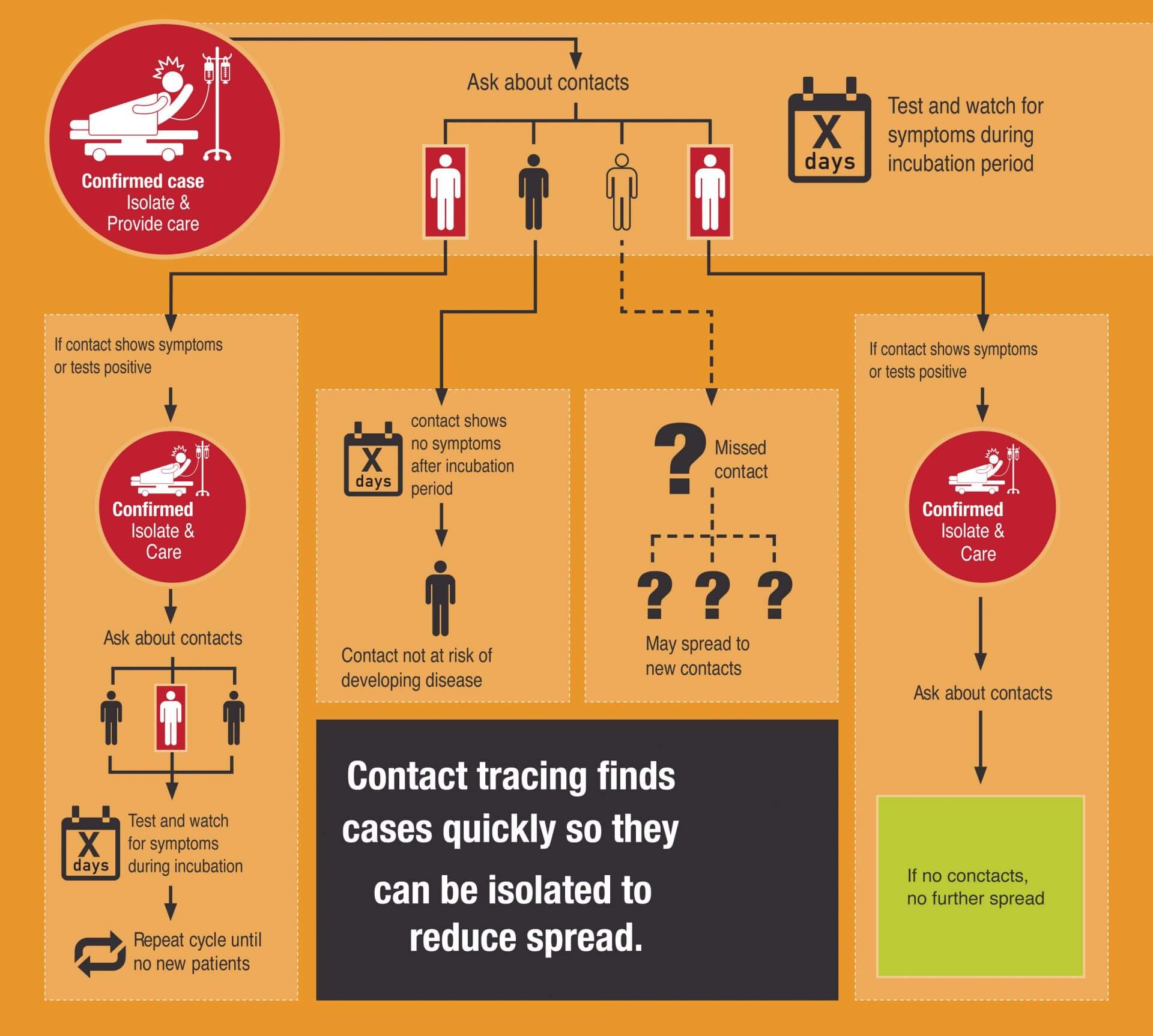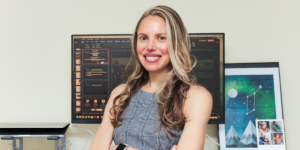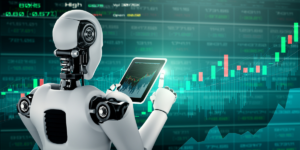
Using computer modeling, the researchers aim to detect not only direct transmission, but also contact with contaminated surfaces and indirect transmission. Photo/iStock
By now, it’s no surprise that contact tracing— identifying a sick person’s recent interactions to determine who else they might have infected—could be an effective way of controlling the coronavirus outbreak.
But traditional methods, mostly person-to-person interviews to identify and isolate those who might have come in contact with the virus, could be too slow in the face of an accelerating pandemic.
The solution? Your smartphone.
USC Computer Science Professor Cyrus Shahabi and his team are working on a contact-tracing app that aims to answer the question: based on my location trails, what is my risk of being infected with coronavirus?
Professor Cyrus Shahabi provides an overview of his research related to tracking coronavirus spread using contact tracing. Presented at the Mini Workshop on Digital Technologies for COVID-19.
Individualized risk analysis
The app allows users to enter symptoms and locations visited, and provides an individualized risk analysis, identifying potential hot spots and giving researchers a better idea of how the virus is spreading, without compromising user privacy.
It could help officials trace where the virus is going and alert nearby people automatically, advising testing or temporary isolation. Using computer modeling, the researchers aim to detect not only direct transmission, but also contact with contaminated surfaces and indirect transmission.
“Contact tracing technology can play an important role in reducing the spread of the virus at the beginning of the curve but also towards the end, to help people go back to their jobs and social lives,” said Shahabi, chair of USC’s Department of Computer Science and Helen N. and Emmett H. Jones Professorship in Engineering.
“The key challenge is how do we reduce coronavirus spread in this immediate crisis, but also how do we contain hot spots going forwards.”

Traditional contact tracing methods, depicted above, are effective, but could be too slow in the face of a pandemic. Using phone data, potential infected individuals can be notified more quickly, tested and potentially isolated to stop the spread. Photo/CDC Creative Commons.
The app development began as a collaboration with Peter Kuhn, a USC dean’s professor of biological sciences at the Dornsife College of Letters, Arts and Sciences, and will be extended to include a backend for data management and analysis in a collaboration with researchers at Emory University and the University of Texas Health Science Center (UTHealth).
The project has received a National Science Foundation Rapid Response Research award, which was created in response to emergency cases such as the coronavirus pandemic.
Privacy enhancements
While contact tracing has been working in countries like South Korea and China, there are still question marks over privacy issues and the effectiveness of tracing disease using mobile phone data.
But Shahabi, an expert in location privacy, and his team are prepared: for several years, the researchers have been tackling both these issues for more everyday location-based services such as ride-sharing apps and “point of interest” searches.
In current research projects, Shahabi and his team are working on making encrypted data algorithms more efficient when searching for location data. Another active project in Shahabi’s lab looks at adding noise to location data before the app sends data to the backend system. But encryption can be slow and adding noise can also make location-tracking less effective.
“This project is the culmination of many years of work, with many strands of research coming together to tackle a worldwide pandemic.” Cyrus Shahabi.
For the COVID-19 contact tracing app, the team is initially focusing on simpler privacy enhancements to mitigate privacy risks, while ensuring immediate public health impact. Specifically, users can choose frequency of tracking, or manual check-in, as well as specificity of uploaded locations—for instance, downtown LA versus Grand Central Market—as their risk evolves.
Future versions of the app will combine encryption and adding noise to strike a compromise between accuracy and speed.
Shahabi’s previous research on inferring friendship networks between users using mobile phone data will also help improve the accuracy of the app’s risk analysis aspect. The thinking goes that people spend more time with those to whom they are socially connected. As such, you are more likely to be infected by a friend sitting opposite you for the duration of lunch than from a server who takes your order.
“This project is the culmination of many years of work, with many strands of research coming together to tackle a worldwide pandemic,” said Shahabi. “We are particularly well positioned to tackle this problem due to our prior work in location privacy and mobility data analysis.”
The app could, in theory, be ready in a number of weeks, but depends on cheap and easy testing, which isn’t available yet in the U.S. or many other countries. The team is currently working with health authorities to approve the app and connect with users in order to gather data voluntarily. The researchers plan to roll out the app to the student population of the researchers’ three universities in the fall semester.
Published on April 9th, 2020
Last updated on May 16th, 2024












